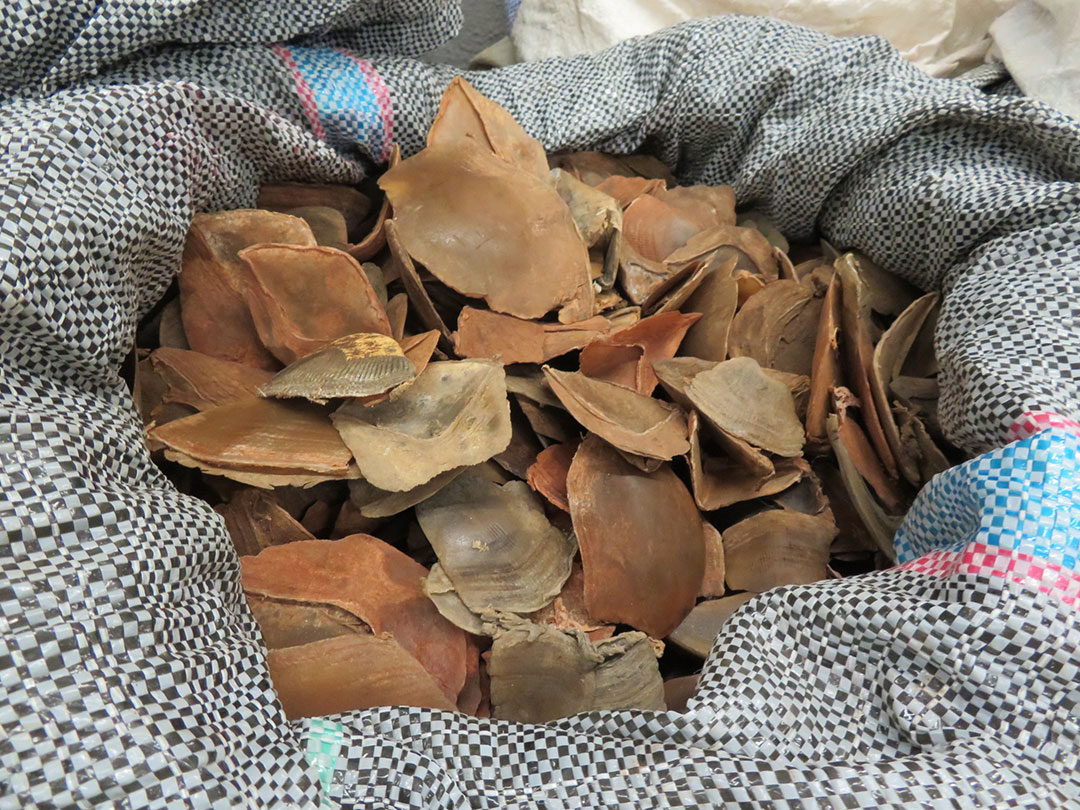Despite China’s Promises, Pangolin Trafficking Continues
ADF STAFF
In the face of an international outcry over the widespread slaughter of pangolins for traditional Chinese medicine (TCM), China said it would protect the world’s most poached animal.
But the watchdog group the Environmental Investigation Agency (EIA) says little has changed.
“China has taken some half-measures but not gone the full way in banning the use of pangolin scales in medicine,” Chris Hamley, a senior pangolin campaigner at the EIA, told The Guardian. “Given the massive illegal trade and weak regulation internally, it is very likely that pharmaceutical companies are using illegal scales.”
In its report, “Smoke and Mirrors,” the EIA found 221 Chinese companies licensed to sell more than 60 products containing pangolin scales, including over-the-counter medicines. Chinese health insurance also still covers pangolin-scale treatments.
“While pangolin scales are being used in TCM, the larger pangolin scales are being diverted into the ornamental trade and used as jewelry,” Hamley said in a Zoom discussion hosted by the Environmental Reporting Collective.
Many of those large pangolin scales come from Africa, which has become the new epicenter for pangolin trafficking as China’s demand has decimated its own pangolin populations and those in Southeast Asia.
In 2015, China upgraded domestic pangolins to a Class 1 species.
“That doesn’t prohibit the sale of pangolin parts, but it does make the permitting process more difficult,” said Sam Wasser, director of the University of Washington’s Center for Conservation Biology told ADF. Wasser works closely with the EIA and groups in Africa to monitor the trafficking of pangolins scales, ivory and other sought-after animal parts.
TCM devotees claim pangolin scales can treat a range of issues from arthritis to helping new mothers lactate. They’re consumed as a broth or ground into powder and taken in pill form. Pangolin scales are made of keratin, the same material in hair, horns and fingernails.
Pangolin meat is a delicacy for some in China. One hypothesis about the origin of the virus is that a pangolin in a market in Wuhan, China was the bridge that allowed COVID-19 to jump from bats to humans.
In 2016, the 186 countries that are part of the Convention on International Trade in Endangered Species(CITES) banned the commercial trade in pangolins. Yet trafficking continues. Tim Davenport, Tanzania-based director for species conservation for the World Conservation Society, said CITES has been unable to enforce the ban.
“China has huge global reach and influence, economically and politically. This is particularly the case in many parts of Africa,” Davenport told ADF. “Put all these together and it becomes apparent why CITES often lacks the teeth to do what many might wish.”
CITES restricts international trade, so it gives Chinese authorities the ability to seize scales, body parts and other contraband should they turn up at official border crossings — something that Wasser says appears to be rare. More likely, he said, smugglers bring in scales and other items from neighboring countries through unofficial, unmarked routes.
“That seems to be the way these large consignments of wildlife contraband get into the country,” Wasser said.
In that case, China needs to create laws that prohibit the sale of illegal items, he said.
Bowing to the public concern over the potential extinction of pangolins, the Chinese government recently removed pangolin scales from its official list of approved TCM ingredients, although it kept them listed in an appendix.
Despite that, TCM practitioners continue to use pangolin scales, drawing down from what Chinese leaders describe as the national stockpile, a stockpile the EIA describes as “bottomless.”
Speculation that the Chinese are feeding the TCM market by the captive breeding of pangolins — something that no one has ever managed successfully — is laughable, Wasser said.
“The alternative is that they have stockpiled pangolin scales in massive volumes large enough for them to be releasing 25 tons per year, year after year after year,” he added. “That, in itself, seems hard to believe.”
Add to that roughly 100,000 pangolins being poached each year, largely in Africa, and the question arises: Where is all this material going?
“China is certainly the biggest market,” Wasser said. “So, it’s quite reasonable to suspect that’s where the majority of it is ending up.”


Comments are closed.